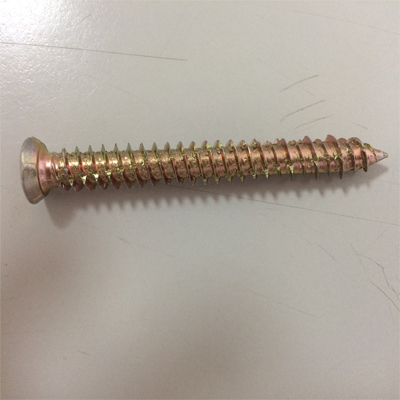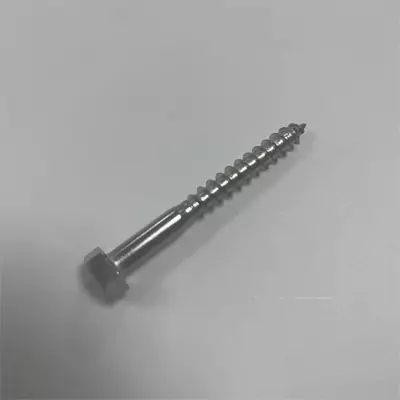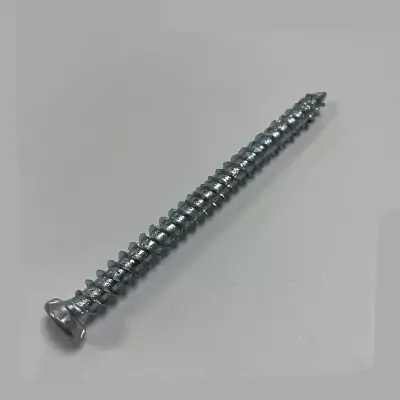caTEGORIES
Tags
Are Masonry Screws More Reliable Than Traditional Masonry Nails?

Posted: August 29, 2024
Categories: News
Masonry screws have gained popularity in the construction industry for their reliability and effectiveness in various applications. Unlike traditional masonry nails, which have been used for decades, masonry screws provide distinct advantages that can enhance the durability and integrity of construction projects. This article delves into the differences between masonry screws and traditional masonry nails, their performance in different situations, and when it is best to choose one over the other.
What Are the Differences Between Masonry Screws and Traditional Masonry Nails?
Composition and Material Quality
When comparing masonry screws to traditional masonry nails, one of the primary differences lies in their composition and material quality. Masonry screws are typically made from carbon steel, stainless steel, or brass, which provides better resistance to corrosion and ensures long-term durability. In contrast, traditional masonry nails are often made from lower-quality materials, which may not provide the same level of performance in challenging environments. High-quality materials in masonry screws contribute to their enhanced load-bearing capacity and resistance to environmental factors like moisture and temperature fluctuations.
Design and Thread Type
The design and thread type also play significant roles in distinguishing masonry screws from traditional masonry nails. Masonry screws feature specially designed threads that allow them to create a secure connection when driven into concrete, brick, or mortar. These threads are often more pronounced than those on traditional masonry nails, which can lead to a stronger bond with the substrate. Furthermore, masonry screws are designed to be installed with a power tool, making the process quicker and more efficient compared to driving in nails manually. This design advantage can help reduce labor time on a project, ultimately leading to cost savings.
How Do Masonry Screws Perform in Different Situations?
In Concrete Applications
Masonry screws excel in concrete applications due to their ability to create a strong connection without the need for pre-drilled holes for anchors. When properly installed, masonry screws can provide superior holding power in concrete compared to traditional masonry nails. The threads of masonry screws grip the concrete more effectively, allowing for a reliable attachment that withstands significant loads and tension. This makes masonry screws an ideal choice for anchoring fixtures, brackets, or even heavy equipment directly to concrete surfaces.
In Brick and Mortar Applications
Similarly, masonry screws also perform well in brick and mortar applications. Unlike traditional nails, which can split bricks or fail to penetrate mortar properly, masonry screws can be installed with precision to ensure a solid connection. Their threaded design allows for better engagement with the brickwork, reducing the risk of loosening over time. Additionally, the ability to remove and replace masonry screws without damaging the surrounding material makes them a practical choice for renovations or modifications, further enhancing their appeal in various construction scenarios.

When Should You Choose Masonry Screws Over Nails?
Evaluating Load and Tension Requirements
Choosing between masonry screws and traditional masonry nails often comes down to evaluating the load and tension requirements of your project. If your application involves significant weight or stress, masonry screws are usually the best option due to their superior structural integrity and load-bearing capacity. They can accommodate larger loads without failing, making them suitable for applications like securing shelving, cabinets, or mounting heavy equipment. On the other hand, if the project requires lighter attachments that do not experience significant forces, traditional masonry nails may still be a viable choice.
Practical Considerations for Specific Projects
Practical considerations, such as the specific materials being used and the environment in which the fasteners will be installed, should also guide your decision between masonry screws and traditional nails. In environments prone to moisture or corrosion, the benefits of using masonry screws made from stainless steel or coated to resist rust can be significant. Furthermore, if the project involves frequent adjustments or modifications, the ease of removing and reinstalling masonry screws becomes a crucial factor that can contribute to long-term efficiency. These practical aspects highlight the versatility of masonry screws in various construction projects and underscore the importance of making informed choices based on project requirements.
In conclusion, when deciding between masonry screws and traditional masonry nails, it is essential to consider the differences in material composition, design, and performance characteristics. While both fasteners have their place in construction, masonry screws tend to offer superior reliability, especially in situations demanding strong connections. Evaluating the load requirements and practical considerations of your specific project can guide you in selecting the most appropriate fastening solution to ensure both durability and effectiveness.
Recommendations for Masonry Screws
Torx CSK Head Concrete Screws / Masonry Screws
When selecting masonry screws for concrete applications, you may want to consider the Torx CSK head concrete screws. These screws come equipped with a countersunk design that allows them to sit flush with the surface, providing a cleaner aesthetic. The Torx drive system also enhances torque transmission, reducing the risk of stripping the head during installation. This type of screw is ideal for securing fixtures and ensuring a strong grip in concrete without the need for anchors, making it a practical choice for both commercial and residential projects.
Additionally, the corrosion-resistant coating often associated with Torx CSK head screws ensures longevity in exposed environments. You can be confident in their performance over time, particularly in applications that are susceptible to moisture or harsh weather conditions. Furthermore, the precise threading allows for easier installation with a power tool, which increases efficiency on the job site. These features collectively make the Torx CSK head concrete screws not only versatile but also a reliable choice for various masonry applications.
Stainless Steel Hexagon Head Coach Screws (Lag Screw) DIN 571

If you require a high-strength option for heavier applications, stainless steel hexagon head coach screws, also known as lag screws, conforming to DIN 571 standards, should be part of your consideration. These screws are designed to bear substantial loads and are particularly effective when securing structural elements, including heavy timber or metal to concrete or masonry surfaces. Their robust construction and threading allow for excellent load distribution, making them suitable for tasks that demand high strength and durability.
The use of stainless steel significantly increases resistance to corrosion, which is beneficial in environments prone to moisture or salt exposure. This quality makes stainless steel hexagon head coach screws particularly suited for outdoor applications or anywhere that environmental factors could compromise performance. Their design accommodates easy installation using standard tools, ensuring that the process is efficient and minimizes the risk of damage to the materials being fastened. By opting for DIN 571 compliant screws, you ensure that you are utilizing a secure and durable fastening solution tailored for demanding construction tasks.
Wrap-Up Insights on Choosing Between Masonry Screws and Nails
In summarizing the deliberation between masonry screws and traditional masonry nails, it’s crucial to consider the type of project and its specific requirements. Masonry screws emerge as a highly reliable alternative due to their enhanced load capacity and ease of use in various applications, including concrete, brick, and mortar. Their construction from high-quality materials provides advantages such as corrosion resistance and improved holding power, which can contribute significantly to the longevity of your project.
Additionally, the ease of installation, particularly with screws designed for power tools, can lead to greater efficiency on the job site. You should also weigh the practical aspects of your project, such as the anticipated need for adjustments or changes over time. With their ability to be removed and reinstated without damaging the surrounding material, masonry screws represent a more flexible option compared to traditional nails.
In conclusion, the choice between masonry screws and traditional masonry nails hinges on various factors, including load requirements, material types, and environmental conditions. By carefully considering these elements, you can make an informed decision that not only meets the structural demands of your project but also enhances the overall stability and performance of your construction.



